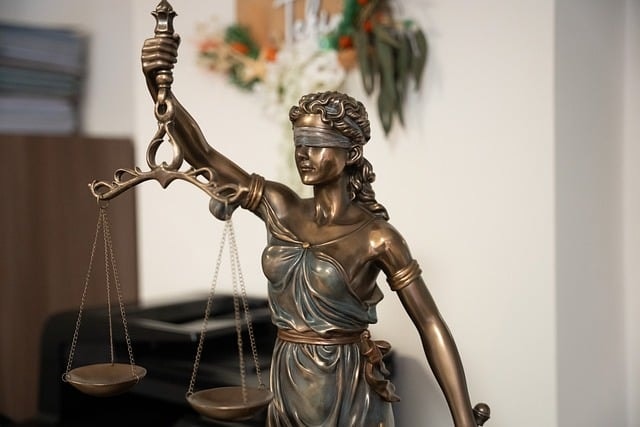Plea bargaining is a crucial negotiation in which a defendant agrees to plead guilty to a lesser charge or one of several charges in exchange for certain benefits, such as reduced penalties or dropped charges. This practice resolves most criminal cases in Utah without needing a trial. At Levitt Legal, our experienced attorney, Darren Levitt, assists clients in navigating this complex process, tailoring defense strategies to each individual’s situation to secure the best possible outcomes.
Key Takeaways
- High Prevalence: Approximately 90-95% of criminal cases in Utah are resolved through plea bargaining, underscoring its significance in the legal process.
- Types of Plea Bargains: There are three main types of plea bargains: charge, sentence, and fact. Each type offers distinct strategic benefits and is chosen based on the case’s specifics.
- Judicial Approval: Essential in Utah, judges ensure that plea deals are entered voluntarily and align with the interests of justice and public safety.

Understanding Plea Bargaining in Utah
Plea bargaining is an integral component of Utah’s criminal justice system. It offers a way for defendants to avoid the uncertainties of a trial by agreeing to plead guilty to lesser charges. This not only expedites the resolution of cases but also reduces the burden on courts and allows for more lenient sentencing options.
Process Overview
The plea bargaining process typically begins with negotiations between the defense and prosecution, after which the defendant enters a guilty plea in open court. This plea is subject to approval by a judge, who must verify that it is made voluntarily and that there is a factual basis for it. This process’s flexibility allows for various negotiation strategies, which can be adapted to suit the specifics of each case.
Role of Attorneys
Experienced criminal defense attorneys like Darren Levitt play a pivotal role in plea negotiations, ensuring that their clients understand the implications of a guilty plea and striving to achieve a resolution that minimizes penalties. These attorneys are adept at navigating the complexities of plea negotiations, advocating for their client’s interests, and ensuring that the agreed-upon terms are in their client’s best interests.
Types of Plea Bargains Available
Plea bargains in Utah fall into three primary categories, each serving different strategic purposes:
- Charge Bargaining: Involves negotiating for the defendant to plead guilty to a less serious charge than the original, more severe charge, effectively reducing potential penalties.
- Sentence Bargaining: This type of bargain is sought when a defendant agrees to plead guilty to the charged offense in exchange for a lighter sentence than the maximum allowed.
- Fact Bargaining: Rare but used in specific circumstances where a defendant agrees to stipulate to certain facts, thereby preventing other, more damaging evidence from being used in court.
The Role of District Attorneys and Prosecutors
Prosecutors have a significant influence on the plea bargaining process. They decide whether to offer a plea deal and what terms to offer based on factors such as the evidence’s strength, the offense’s severity, and the defendant’s prior criminal history. An adept attorney like Darren Levitt can often negotiate terms more favorable than those initially proposed by the prosecution, leveraging weaknesses in the prosecution’s case to benefit the client.
Benefits of Accepting a Plea Deal
Choosing to accept a plea deal can provide several benefits:
- Reduced Sentencing: Often results in lighter penalties than those possible from a trial verdict. This is particularly beneficial in cases involving severe charges where the risk of a maximum sentence looms large. By agreeing to a plea deal, defendants can avoid the harshest penalties and potentially reduce the impact on their future.
- Quicker Resolution: Resolves cases faster than going to trial, reducing emotional and financial strain. Trials can be lengthy, involving numerous court appearances and extensive preparation, which can be both stressful and costly. A plea deal streamlines the process, allowing defendants to move forward with their lives sooner.
- Decreased Uncertainty: Avoids the unpredictability of a jury verdict. Trials are inherently uncertain, with outcomes that depend on various factors, including the jury’s perception of the evidence and the effectiveness of legal arguments. Plea deals offer a more predictable resolution, providing defendants with a clearer understanding of the consequences they face.
Additionally, plea bargains can sometimes include terms that allow for rehabilitation programs or community service instead of incarceration, offering defendants a chance to address underlying issues related to their criminal behavior. This can be especially advantageous for first-time offenders or those charged with non-violent crimes, as it provides an opportunity for reform and reintegration into society.
Moreover, plea deals can help preserve relationships and employment by minimizing the time spent away from family and work commitments. By resolving the case more swiftly, defendants can focus on rebuilding their lives and maintaining stability in their personal and professional spheres.
The benefits of accepting a plea deal extend beyond the immediate legal outcomes. They offer a pathway to a more stable and manageable future while reducing the overall burden of the criminal justice process.
Risks Associated with Plea Bargains
Despite its benefits, plea bargaining comes with risks that must be carefully considered:
- Waiver of Rights: By pleading guilty, defendants waive substantial rights, including the right to a trial by jury. This means they forfeit the opportunity to have their case heard and decided by a jury of their peers, which could potentially lead to an acquittal if the evidence against them is weak. Moreover, they also waive the right to confront and cross-examine witnesses, as well as the right to present their evidence and witnesses in defense.
- Permanent Record: A guilty plea becomes part of the defendant’s criminal record, which can have long-term consequences. This record can impact various aspects of life, including employment opportunities, housing applications, and eligibility for certain professional licenses. Additionally, a criminal record can affect personal relationships and community standing and result in collateral consequences such as loss of voting rights or ineligibility for government benefits. For non-citizens, a guilty plea can have severe immigration repercussions, including deportation or denial of re-entry into the country. Therefore, defendants must weigh these potential outcomes against the benefits of a plea deal, with the guidance of an experienced criminal defense attorney who can provide insight into how a plea might impact their future.
Common Cases for Plea Bargains in Utah
Plea bargains are particularly common in cases involving drug and alcohol offenses, DUI, domestic violence, and property crimes due to the flexibility to negotiate terms that consider rehabilitation and future conduct. These types of cases often present opportunities for plea deals because they may involve mitigating factors such as substance abuse issues, mental health considerations, or family dynamics that can be addressed through alternative sentencing options.
For instance, in DUI cases, defendants might be offered a plea deal that includes mandatory participation in alcohol education programs or community service, which can be more beneficial than incarceration. In domestic violence cases, plea agreements might involve counseling or anger management classes, aiming to prevent future incidents and promote rehabilitation.
Property crimes, such as theft or vandalism, often involve first-time offenders or young individuals who may benefit from diversion programs focusing on restitution and community service rather than punitive measures. By negotiating plea deals, defense attorneys can advocate for outcomes that reduce penalties and support the defendant’s long-term rehabilitation and reintegration into society.
Moreover, plea bargains in these cases can help alleviate the burden on the court system by resolving matters more efficiently, allowing the legal process to focus resources on more severe and complex criminal offenses. This approach aligns with the interests of justice, ensuring that defendants have the opportunity to address underlying issues contributing to their criminal behavior while minimizing the impact on their prospects.

Judicial Approval and Oversight
Judicial oversight ensures that plea bargains are fair and in the public interest. Judges in Utah carefully review plea agreements to ensure they are made voluntarily and with a full understanding of the implications. This oversight is crucial in maintaining the integrity of the plea bargaining process.
In Utah, judicial approval safeguards against potential abuses in the plea bargaining system. Judges are tasked with ensuring that defendants are not coerced into accepting plea deals and that they fully comprehend the legal consequences of their decisions. This involves a comprehensive review of the plea agreement terms to verify that the defendant’s rights are protected and that the plea is by legal standards.
Moreover, the judicial oversight process includes evaluating the plea deal’s alignment with justice and public safety principles. Judges assess whether the proposed sentence or charges reflect the severity of the offense and the defendant’s criminal history. This ensures that plea bargains contribute positively to the community by balancing the interests of the defendant, the victim, and society at large.
Judges also play a crucial role in facilitating transparency and accountability in the plea bargaining process. By conducting thorough reviews and requiring detailed justifications for plea agreements, they help maintain public confidence in the criminal justice system. This oversight is particularly important in cases involving serious offenses, where the implications of a plea deal extend beyond the individual defendant to broader societal concerns.
Ultimately, judicial oversight in Utah serves as a critical check within the plea bargaining process, ensuring that all parties involved adhere to legal and ethical standards. It underscores the importance of a fair and just legal system that prioritizes the rights and well-being of both defendants and the community.
Differences in Plea Bargaining Across Utah’s Judicial Districts
Plea bargaining practices can vary significantly across Utah’s judicial districts, reflecting differences in local legal cultures and policies. Certain districts have judges with stricter approval criteria for plea deals, necessitating more detailed justifications from both sides. These variations can impact the strategies employed by defense attorneys and the outcomes of plea negotiations.
For instance, certain counties may be more lenient in offering plea deals for specific crimes, while others might impose stricter conditions or be less willing to negotiate. Recognizing these regional variations enables defendants and their attorneys to tailor their strategies to each judicial district’s unique practices.
An experienced criminal defense attorney familiar with the local legal landscape can provide invaluable guidance in navigating these complexities.
Alternatives to Plea Bargaining in Utah
While plea bargaining is a common resolution method, alternatives are available for defendants in Utah. One such alternative is diversion programs, which offer defendants the opportunity for probation without undergoing a full trial. Completing these programs can result in the expungement of the criminal act from their records.
The Utah Alternatives to Conviction Track (UACT) is a notable post-guilty plea diversion program aimed at rehabilitation and reducing recidivism. Participants engage in activities designed to address the root causes of their criminal behavior, with successful completion potentially leading to probationary sentences or dismissal of charges. Admission to the UACT program is competitive, requiring eligible defendants to apply for acceptance.
A ‘plea in abeyance’ defers a defendant’s guilty plea until specific conditions are met, providing an alternative resolution to a traditional plea bargain.
The Process of Negotiating a Plea Deal
Plea deal negotiations are complex and confidential, and they can start at any point after an arrest. Typically, defendants initially enter a ‘not guilty’ plea to maintain their right to a trial while negotiations occur. This strategy provides the defense and prosecution time to evaluate the evidence and potential outcomes.
Defense attorneys aim to secure the best possible terms for their clients, often involving a guilty plea to lesser charges for a more lenient sentence. The role of evidence assessment is critical, as it influences the strength of the negotiations and the likelihood of a successful plea deal. Additionally, victims may express their opinions in court before a judge decides on the plea bargain, adding another layer of complexity to the process.
In some instances, defendants may withdraw their guilty plea before sentencing if new evidence emerges or if they reconsider their decision, provided the court approves the motion. This flexibility highlights the need for a seasoned criminal defense attorney to navigate plea negotiations and secure the best outcome for the defendant.

Legal Guidance and Support
Navigating the plea bargaining process requires the expertise of a seasoned criminal defense attorney. These legal professionals protect defendants’ constitutional rights and ensure they make informed decisions. Thorough evidence review and identifying prosecution weaknesses allow defense attorneys to devise strategies that improve their client’s chances of a favorable outcome.
We provide exceptional legal representation tailored to each client’s unique situation at Levitt Legal. Darren Levitt, our lead attorney, personally handles all cases, ensuring dedicated attention and a robust defense strategy.
Our commitment to upholding clients’ rights and achieving the best possible results is reflected in our track record of successfully defending numerous individuals against various criminal charges.
Contact Levitt Legal
Facing criminal charges in Utah requires immediate action to protect your rights and secure a favorable outcome. Darren Levitt of Levitt Legal, an expert in criminal defense, offers free consultations to guide you through Utah’s complex legal system. Our firm, dedicated to integrity and robust defense strategies, specializes in both misdemeanor and felony cases across Salt Lake City, Box Elder, and Tooele counties. We ensure every client receives personalized attention, helping you understand your options, from plea bargaining to diversion programs.
Understanding each step and your rights is crucial given the high stakes of criminal justice. Don’t navigate this challenging time alone—contact Levitt Legal today to explore your legal options and safeguard your future.
Frequently Asked Questions
What is an example of a plea bargain?
An example of a plea bargain is when a defendant charged with burglary pleads guilty to the lesser offense of trespassing, resulting in the dismissal of the burglary charge. This allows the defendant to receive a lighter sentence while the prosecution secures a conviction.
What types of plea bargains are available in Utah?
In Utah, the three primary types of plea bargains are charge bargaining, sentence bargaining, and fact bargaining. Each type allows for the negotiation of charges, sentencing, or evidence in exchange for a guilty plea.
What are the benefits of accepting a plea deal?
Accepting a plea deal offers reduced charges and penalties, ensuring a quicker resolution to your case while minimizing stress and legal expenses. Ultimately, it provides a more predictable outcome compared to going to trial.
What are the risks associated with plea bargains?
Plea bargains carry risks such as waiving constitutional rights, securing a permanent criminal record, and facing immigration repercussions. It is crucial for defendants to thoroughly evaluate these risks with the guidance of a knowledgeable criminal defense attorney.
How can Levitt Legal help with my criminal case?
Levitt Legal can provide you with exceptional representation in your criminal case, guiding you through your rights, plea bargains, and alternative resolutions. Their free consultations ensure you have an opportunity to discuss your situation and options.
